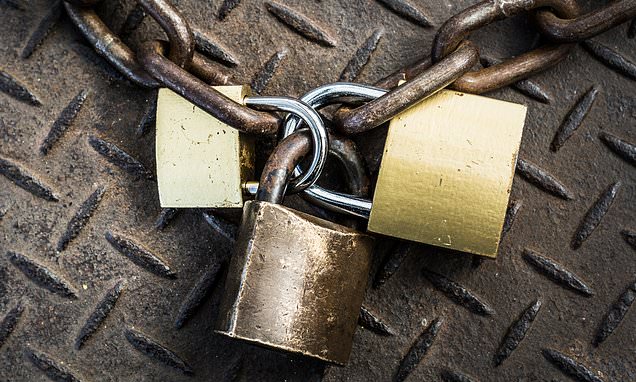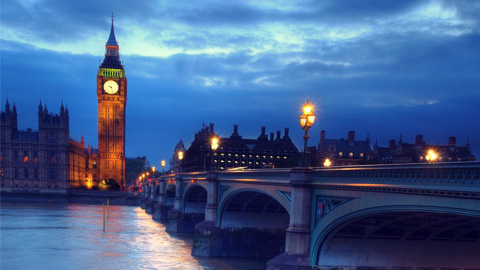Should we keep the triple lock? The readers who claim cutting back would be a disaster vs those who say we can’t afford it

- Few believe triple lock should be dropped… but many believe it needs refining
- It increases based on whichever is higher of earnings growth, inflation or 2.5%
- If earnings growth remains at 8.2% maximum state pension will be worth £11,469
No subject attracts such a range of opinion as the State Pension. Whether it is the cost of providing it, the rights and wrongs of the triple lock guarantee or government meddling, everyone has a view.
Seven days ago, I wrote a piece about the sustainability of the triple lock against the backdrop of a likely 8 per cent-plus increase in the State Pension from the start of the new tax year next April.
It attracted more than 1,700 comments online. I also received a flood of emails from readers eager to share their opinion.
To all who commented, a big thank you. And to those who wrote to me in person, special thanks. Feedback is what we want. Journalists don’t have all the answers (far from it).
As a result, today we dedicate a section of Money Mail to what you have to say about the triple lock, the fairness or otherwise of the State Pension, and its future.
The triple lock: fair or too generous?
Few readers believe the triple lock guarantee should be dropped. But many believe it needs refining.
Currently, it promises an annual increase in the State Pension, based on whichever is the higher of earnings growth (between May and July year-on-year), inflation (in the year to September) or 2.5 per cent.
With earnings growth outstripping inflation (8.2 per cent versus 6.8 per cent), it will be the salaries component of the triple lock on which next year’s State Pension increase will be based.
If earnings growth remains at 8.2 per cent when figures are released next month, it will result in an annual increase in the maximum State Pension of £869, taking it to £11,469.
Related Articles
HOW THIS IS MONEY CAN HELP
Those who retired before 2016 will receive less, with their full basic State Pension increasing from £8,122 to £8,788 in the new tax year starting on April 6.
Alan McFarland, a 67-year-old retired contract manager for Yellow Pages, believes maintaining the value of the State Pension is a ‘government obligation’.
Alan, who lives in Reading, Berkshire, with his wife Kim, says: ‘Government needs to make a distinction between essential and non-essential spending.
No! Cutting back on the State Pension will lead Britain to financial disaster’, LEE TUCKER, 67, truro
‘The State Pension is essential, so it should not be watered down whatsoever. But other spending, such as overseas aid to economies enjoying rapid economic growth, is a luxury this country can no longer afford.’
Another issue Alan has with the State Pension is the propensity of governments to meddle with the rules — for example, continually pushing back the age at which people receive it. Between 2026 and 2028, the state retirement age will rise from 66 to 67.
‘Changing the goalposts is wrong,’ he says. ‘People need to be given greater certainty about the State Pension they can expect, so they can plan accordingly.’
Jim Bell, a 75-year-old retired businessman from Lockerbie, in Dumfries and Galloway, believes keeping the triple lock in its current form is not viable. Experts estimate it will cost £10 billion in the next tax year.
‘The country simply cannot afford the triple lock,’ says Jim. He believes a better method of calculating the increase would be to base it on the average of earnings growth, inflation and 2.5 per cent.
So if earnings growth of 8.2 per cent and inflation of 6.8 per cent turn out to be the relevant figures in determining next year’s State Pension, Jim’s method would result in a 5.8 per cent rise, rather than 8.2 per cent.
Last year, ahead of the 10.1 per cent increase in State Pension that kicked in this April, Jim wrote to his local MP with his idea for a triple lock reform.
But he did not get a response from David Mundell, Conservative MP for Dumfriesshire, Clydesdale and Tweeddale.
‘It’s a simple idea,’ says Jim. ‘It would give pensioners like me a fair increase without the Government having to fund eyebrow- raising increases, or incurring the wrath of pensioners by suspending the triple lock as it did last year.’
For the year starting in April 2022, the increase in State Pension was limited to 3.1 per cent (the increase in inflation) rather than earnings growth (9 per cent) because of government finances taking a battering during the pandemic.
Several readers think any rise in the State Pension should be subject to a cap — figures of 5 per cent and 6 per cent have been mentioned.
This would apply if the triple lock would result in a higher percentage. ‘It’s common sense,’ says pensioner Brian Agnew (name changed), from Eastbourne, East Sussex.
‘The Chancellor should set the level of the cap every year, well in advance of the triple lock being applied.’
Take account of allowances freeze
Some readers believe the increases to the State Pension this year and next need to be put into context.
This is because the Government’s decision to freeze the personal allowance (the amount you can earn before income tax kicks in) has resulted in many pensioners paying more tax.
Among them is 86-year-old Jean Nevins, from Newcastle upon Tyne. Jean, who worked in management computer systems for a leading sports brand. She now pays more income tax on her State Pension and small private pension than ever before.
The country simply cannot afford these massive annual rises in our payouts ‘ JIM BELL, 75, Lockerbie
This is because more of her income exceeds the personal allowance, which has been frozen at £12,570 since 2021 and will remain so until April 2028.
‘I’m not exactly struggling,’ says Jean, ‘but I do have to keep a close eye on my outgoings.
‘The Government gave us a nice State Pension increase this year and one looks on the cards for next year, but I’m not daft. What the Government gives with one hand, it takes with the other.’
That is a view shared by Don Hanley from South Woodham Ferrers in Essex.
Don, who worked in textiles for most of his career, says the 10.1 per cent increase in the State Pension this year has pushed him into paying income tax again because of his income exceeding the personal allowance.
‘I never thought I would be paying income tax again at the grand age of 75,’ he says. ‘It doesn’t seem right or fair.’
State Pension: stick or twist?
Lee Tucker, 67, has no truck with those who believe the cost of maintaining the State Pension (more than £120 billion this tax year) is unaffordable. Some experts, such as think-tank The Adam Smith Institute, argue that it should be means tested.
‘Too many experts look at the State Pension simply as a cost to the taxpayer,’ says Lee, who is married and lives in Truro, Cornwall.
‘What they forget is that the £120 billion is money that doesn’t simply disappear. Most of it goes back into the economy in the form of spending, which in turn generates tax receipts — for example, VAT on eating out, fuel duty on petrol and, of course, income tax [the State Pension is taxable].
‘Most people in the shops and cafes in Truro during the day are pensioners. I doubt whether all these high street businesses, often employing young people, would survive without the elderly spending a chunk of their State Pension in them.’
Lee warns politicians: ‘Any government that attempts to reduce the cost of the State Pension by restricting it will lead the country to financial disaster.’
It’s a view that resonates with many readers. Mess with our pensions at your peril.
What’s your view on the State Pension? Email [email protected]
Some links in this article may be affiliate links. If you click on them we may earn a small commission. That helps us fund This Is Money, and keep it free to use. We do not write articles to promote products. We do not allow any commercial relationship to affect our editorial independence.






